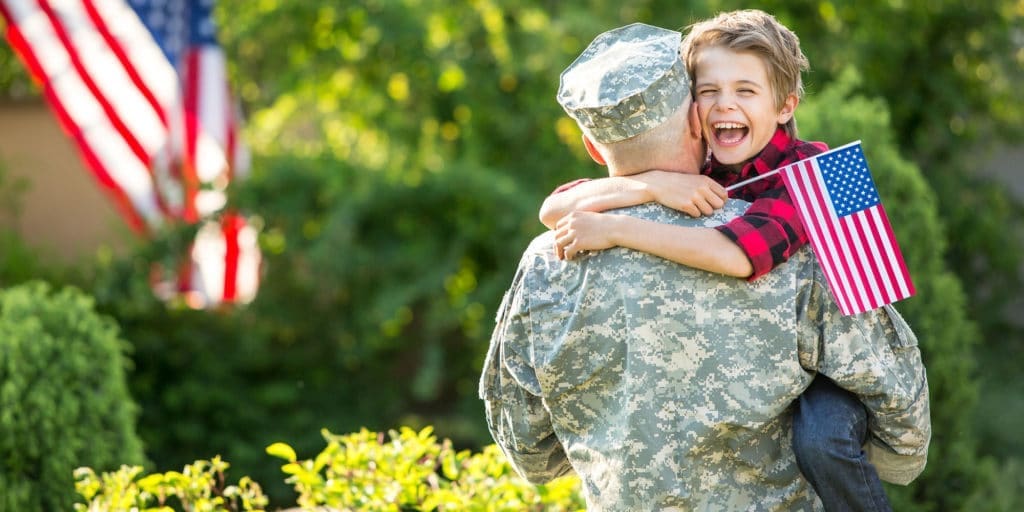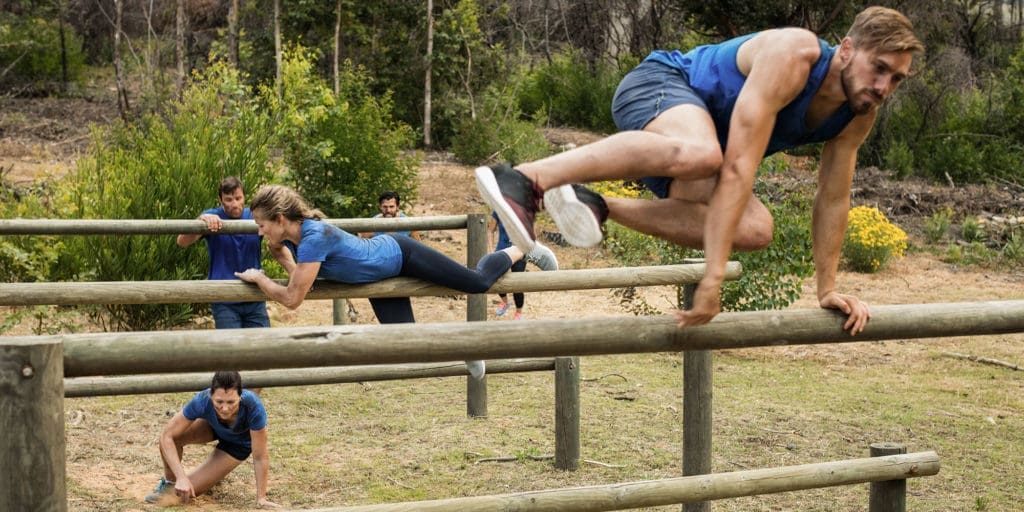Thank You Veterans!
This Veteran’s Day, we wanted to take a moment to not only thank those of you who have served but also provide some mental health tips for those currently deployed so they may come back home, as strong as ever, and partake in future veteran’s day celebrations.
“To us in America, the reflections of Armistice Day will be filled with solemn pride in the heroism of those who died in the country’s service and with gratitude for the victory, both because of the thing from which it has freed us and because of the opportunity it has given America to show her sympathy with peace and justice in the councils of the nations…”
History of Veteran’s Day
In November 1919, President Wilson proclaimed November 11 as the first commemoration of Armistice Day with the following words: “To us in America, the reflections of Armistice Day will be filled with solemn pride in the heroism of those who died in the country’s service and with gratitude for the victory, both because of the thing from which it has freed us and because of the opportunity it has given America to show her sympathy with peace and justice in the councils of the nations…”
The original concept for the celebration was for a day observed with parades and public meetings and a brief suspension of business beginning at 11:00 a.m.
In October of 1954, President Dwight D. Eisenhower issued the first “Veterans Day Proclamation” which stated: “In order to insure proper and widespread observance of this anniversary, all veterans, all veterans’ organizations, and the entire citizenry will wish to join hands in the common purpose. Toward this end, I am designating the Administrator of Veterans’ Affairs as Chairman of a Veterans Day National Committee, which shall include such other persons as the Chairman may select, and which will coordinate at the national level necessary planning for the observance. I am also requesting the heads of all departments and agencies of the Executive branch of the Government to assist the National Committee in every way possible.”
5 Mental Health Tips for Military Deployment
 Deployment is stressful, of that, there is no doubt. According to Mental Health America, some adverse effects of deployment include lack of appetite, trouble concentrating, difficulty sleeping or feeling withdrawn.
Deployment is stressful, of that, there is no doubt. According to Mental Health America, some adverse effects of deployment include lack of appetite, trouble concentrating, difficulty sleeping or feeling withdrawn.
Additionally, a study done in the UK on the consequences of deployment showed that military personnel were more likely to abuse alcohol and or suffer from post-traumatic stress disorder (PTSD) upon return from deployment.
However, statistics are just numbers. In reality, it is possible for those who were recently deployed to stay healthy during their service. Check out these tips below.
1. Stay active
People in the military know there’s not a lot of downtime during active duty, but for those deployed to bases outside of war zones, a fairly regular schedule is common. Keeping active is a way to make time move a little more quickly.
 Many soldiers hit the gym to help pass time , but this can get old day after day. Try engaging in an outdoor activity like playing a round of paintball with your fellow comrades in arms. There are many health benefits to paintballing, such as increasing your interpersonal skills or simply blowing off steam. If you don’t know yet how paintball guns work, don’t worry, they’re safe, accurate and capable of operating extremely fast. It’s the perfect way to take your mind off of pestilent thoughts while you’re engaging in physical activity.
Many soldiers hit the gym to help pass time , but this can get old day after day. Try engaging in an outdoor activity like playing a round of paintball with your fellow comrades in arms. There are many health benefits to paintballing, such as increasing your interpersonal skills or simply blowing off steam. If you don’t know yet how paintball guns work, don’t worry, they’re safe, accurate and capable of operating extremely fast. It’s the perfect way to take your mind off of pestilent thoughts while you’re engaging in physical activity.
2. Send and receive letters
Feeling disconnected from your life back home is an unfortunate reality almost every soldier faces during deployment. It can be difficult keeping up with family if they’re in a different time zone. Although a little old school, sending and receiving letters or care packages can make those long months more bearable, and give you a little piece of home to keep with you. It could be your personal project, something like a hobby. And hobbies are great at keeping us feeling creative and just make us better at many other things.
3. Watch what you eat and get plenty of sleep
Slate.com has a great article on the dangers of unhealthy eating in the military, but for brevity’s sake, just make sure that you’re getting the appropriate amounts of grains, protein and, above all else, fruits and vegetables. Clean eating will make a world of difference during your military career, providing you with the energy and health to be successful.
Also, sleep. Make sure you’re getting enough sleep. Due to the military’s strenuous schedule, the National Sleep Foundation reported that 85 percent of active duty members have been diagnosed with a sleep disorder. Different branches of the military are now funding research to improve soldiers’ sleep. Until then, you should know that there are a few things you can do in order to get better rest, even if you’re in pain. Practicing good eating habits and calming yourself before bed is ideal if you want to get a good night’s sleep.
It will be tempting to stay up an extra hour or two, simply to have time to yourself and a little freedom, but you and your job will seriously suffer if you don’t get enough shuteye.
4. Journal or talk it out
Wes Moore presented a TED talk on how to talk to veterans about war. A common theme of his speech focused on the general public’s evasion of the hard topics of war, with the exception of the handful of people asking if you’ve shot someone. Wes expressed his need to talk out his experiences, the good and the bad. He expressed his need to feel acknowledged, and for the world to know that once his military service is over, he will still have much to offer.
 In the field of psychology, talking about or journaling one’s anxiety is a well-known technique to reduce symptoms. Grab a pen and some paper, or keep in touch with a confidante, and let it all out.
In the field of psychology, talking about or journaling one’s anxiety is a well-known technique to reduce symptoms. Grab a pen and some paper, or keep in touch with a confidante, and let it all out.
If you’re not comfortable opening up to a family member or friend, and journaling just isn’t cutting it, consider talking with a psychiatrist or using an app like Talkspace. You might also consider joining a support group where you can share your story with others in similar situations.
“If you can’t fly then run, if you can’t run then walk, if you can’t walk then crawl, but whatever you do you have to keep moving forward.”
5. Set goals and hone your skills
Actor and musician Ice T served four years in the military. He used this time to create financial security so that by the time his deployment ended, he had enough money saved to embark on his new career. Not everyone will make it as a famous musician, but Ice T had the right idea of making plans for the future.
It can be hard making plans for the future when you’re not sure what you want to do for the rest of your life; however, you have at least four years ahead of you to narrow it down. Start small, then dream big. Begin by making short-term goals: I want to learn “X” skill by “X” date.
Still anxious about the future? Utilize more resources that aid you in finding advice, training and an online network of professionals. Don’t be afraid to reach out to someone who’s doing something that you might be interested in, and just ask for his or her advice.
Regardless, keep moving forward. One foot in front of the other will get you somewhere. As Martin Luther King, Jr. said, “If you can’t fly then run, if you can’t run then walk, if you can’t walk then crawl, but whatever you do you have to keep moving forward.” Setting goals will not only build your resume and skill set but will also help the time pass more quickly.
The bottom line on Tips for Military Deployment
There’s no sugar-coating it: deployment is not easy. It is stressful, jarring and hard to get used to – but you will adapt. As long as you take care of yourself by adopting healthy habits, you will be better able to take care of your country, thus succeeding in your career as a military member.
What tips would you share with those deployed in the military?
Tell us below in the comments!
What topics related to active military and veterans would you like to see us research?
Email your ideas to info@painresource.com.
Are you on Facebook?
Join our online community by clicking here.

